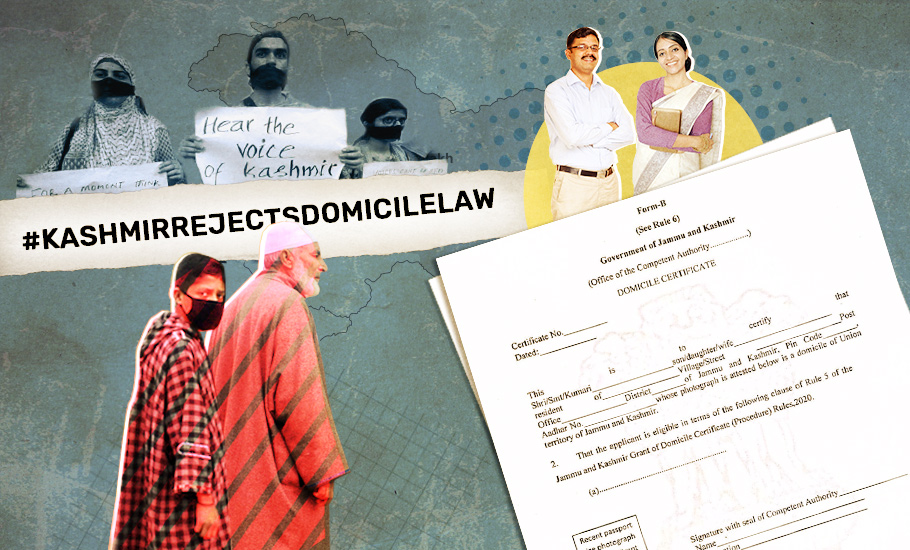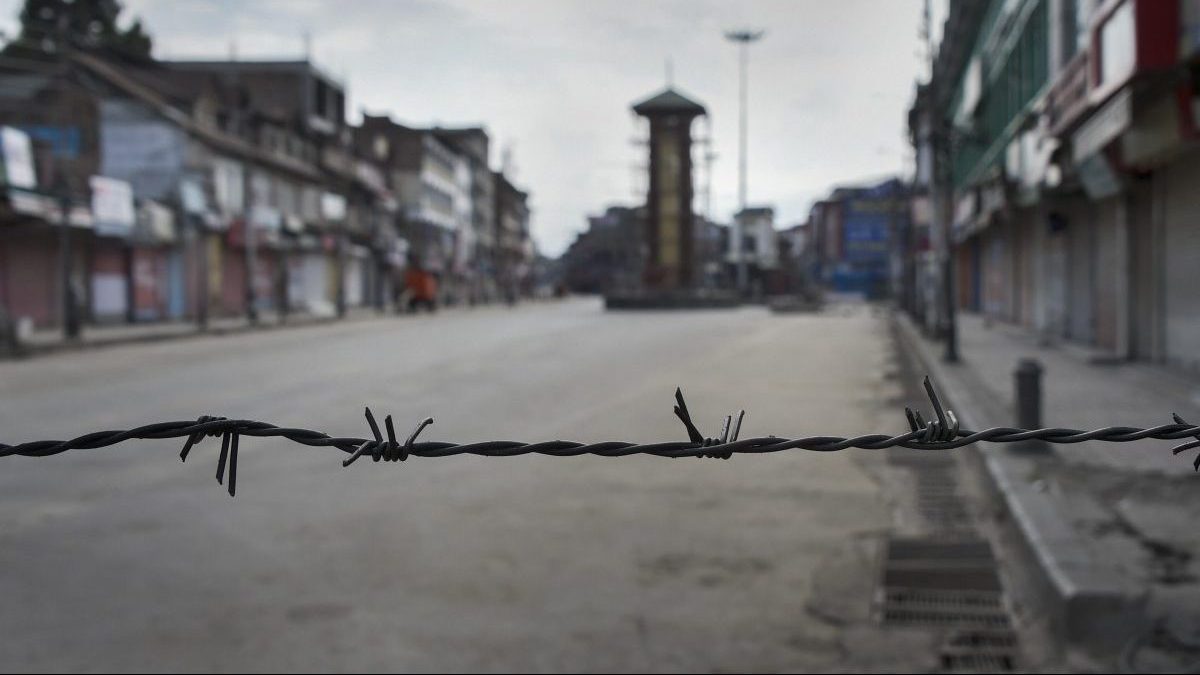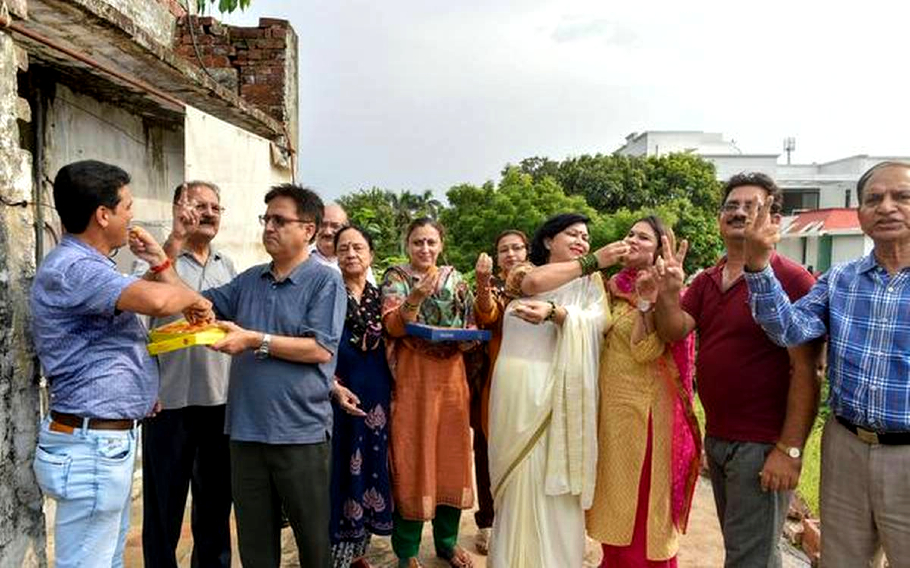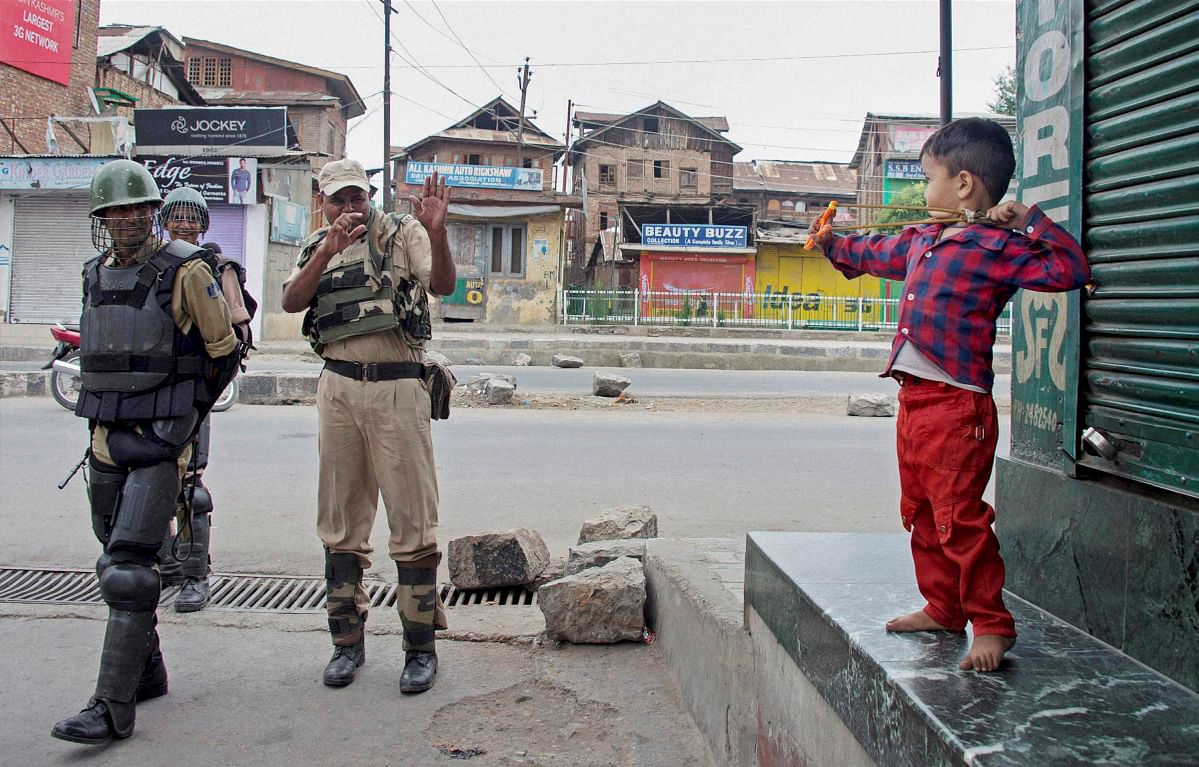
- Home
- India
- World
- Premium
- THE FEDERAL SPECIAL
- Analysis
- States
- Perspective
- Videos
- Sports
- Education
- Entertainment
- Elections
- Features
- Health
- Business
- Series
- In memoriam: Sheikh Mujibur Rahman
- Bishnoi's Men
- NEET TANGLE
- Economy Series
- Earth Day
- Kashmir’s Frozen Turbulence
- India@75
- The legend of Ramjanmabhoomi
- Liberalisation@30
- How to tame a dragon
- Celebrating biodiversity
- Farm Matters
- 50 days of solitude
- Bringing Migrants Home
- Budget 2020
- Jharkhand Votes
- The Federal Investigates
- The Federal Impact
- Vanishing Sand
- Gandhi @ 150
- Andhra Today
- Field report
- Operation Gulmarg
- Pandemic @1 Mn in India
- The Federal Year-End
- The Zero Year
- Science
- Brand studio
- Newsletter
- Elections 2024
- Events
- Home
- IndiaIndia
- World
- Analysis
- StatesStates
- PerspectivePerspective
- VideosVideos
- Sports
- Education
- Entertainment
- ElectionsElections
- Features
- Health
- BusinessBusiness
- Premium
- Loading...
Premium - Events

New domicile law amplifies anxiety over demography in J&K
Some experts believe the government has brought the domicile to disempower the permanent residents politically and economically.

A pall of gloom descended on the scenic Kashmir valley when it was learned that the Jammu and Kashmir administration had started granting new domicile certificates to non-Kashmiris. A senior J&K cadre Indian Administrative Service (IAS) officer from Bihar, Navin Kumar Choudhary, along with 30,000 others, was granted domicile documents. “This is to certify, Shri Navin K Choudhary son of...
A pall of gloom descended on the scenic Kashmir valley when it was learned that the Jammu and Kashmir administration had started granting new domicile certificates to non-Kashmiris. A senior J&K cadre Indian Administrative Service (IAS) officer from Bihar, Navin Kumar Choudhary, along with 30,000 others, was granted domicile documents.
“This is to certify, Shri Navin K Choudhary son of Shri Deokant Choudhary resident of at present Gandhi Nagar, Jammu, is a domicile of UT of J&K,” reads the certificate issued by Tehsildar Dr Rohit Sharma, in Bahu area of Jammu.
Choudhary’s certificate has his photograph pasted on it along with the Aadhaar card number.
The case of the bureaucrat, currently serving as principal secretary in the agriculture production department in J&K, is important, for he originally hails from Bihar and has now become a J&K domicile.
As per the new J&K Grant Domicile Certificate (Production) Rules, 2020, individuals who have resided in Jammu and Kashmir for 15 years or have studied for seven years or appeared in examinations for class 10 or 12 can be eligible for the grant of a domicile certificate. The eligibility also extends to West Pakistan Refugees (WPRs) registered as migrants under the erstwhile state’s Relief and Rehabilitation Commission.
Minutes after the picture of Choudhary’s domicile certificate went viral and caused panic, reactions and commentaries followed on social media.
Babu vs babu
Amit Kushari, a retired IAS officer from J&K cadre, was amused to learn about Choudhary getting permanent resident domicile certificate. “Wah bhai kya baat hai (Wow! What an achievement!) Congrats to Navin & Amita. If a Bihari can get this, a Bong (Bengali) like me could have got it too. I lived in J&K for 37 years and my children passed class 10 & 12 from J&K. But even if that certificate was given to me on a silver plate, how could I take it?” Kushari wrote.
“That certificate would have been soaked in the tears of my Kashmiri /Jammuite brothers? Unless Delhi grants total autonomy to J&K and my Kashmiri brothers themselves give me the certificate smiling all the way, I would never take it. Woh mere kis kaam ke? (What purpose would it serve?),” he added.
The retired officer said that he would neither settle down in J&K nor would his children. “If I want to stay there I can live as a loved guest in any Kashmiri or Jammu family. I would love to live in their hearts.”
The retired bureaucrat’s comments offer a perspective on the sensitive issue of permanent residency in J&K.
New reality
This irrefutable reality that people from outside J&K are now eligible to become domiciles has caused anxiety, more so in Kashmir Valley and parts of the Chenab and Pir Panjal range in Jammu province. An overwhelming majority now fears that a demography change is round the corner.
The region lost its semi-autonomous status and statehood in August last year and subsequently the Amit Shah-led Ministry of Home Affairs (MHA) introduced a new domicile order for J&K during the COVID19 pandemic.

The order is a departure from the earlier constitutional position of J&K. Article 35(A) of the Indian Constitution and Section 6 of J&K Constitution had empowered the state legislature to define a permanent resident of J&K while Article 370 defined the relationship between Srinagar and New Delhi. The resident would then enjoy certain rights and privileges which included the exclusive right to buy land and immovable property, government employment and scholarships, etc.
History of state subject law
The original hereditary state subject rules date back to 1927 when the Dogra Maharaja had to face an unrelenting agitation led by Kashmiri Pandits who were apprehensive about losing employment in state service. The Dogra court had introduced a host of administrative reforms that included invalidating Persian as the official language (introduced in 1889) and replacing it with Urdu. The Pandit community was not well-versed with Urdu language at the time.
In 1927, a new definition of state subject was endorsed by the Dogra court. All persons born and residing in the state before the commencement of the reign of Maharaja Gulab Singh and also all persons who settled there before the commencement of the year 1885 and have been permanently residing in the country were deemed as state subjects.
From their stiff resistance aimed at protecting the indigenous Kashmiri identity in the late 1920s, a lot has changed in how the narrative of Kashmiri Pandits has played out in the recent past. Their unfortunate departure from the Kashmir Valley in January 1990 to Jammu and other parts of the country has become a controversial subject since.
Kashmiri Pandit migration
According to official figures, the total number of Pandits stood at 1.5 lakh at the time of their flight. At least 38,119 Kashmiri Pandit families were registered with the government, of which 24,202 migrated in January 1990. Pandits represent less than 5% of the total population. At present, the government claims 60,452 families are registered with it, of which over 2,000 families continue to live in the Kashmir Valley while many live in Jammu and other parts of India and the globe.
Losing one’s home and hearth is an issue that can never be brushed aside. In March 2010, the J&K government told the Legislative Assembly that 219 Kashmiri Pandits were killed by militants from 1989 to 2004.
“From 2004, no killing of any person from the community (Kashmiri Pandits) took place till now,” Former revenue minister Raman Bhalla said in the Assembly. He said that 808 Pandit families consisting of 3,445 people had never migrated and still lived in the Valley. Many more have returned since and continue to live in central Kashmir’s Budgam district, parts of north and south Kashmir while some have returned to their original villages and towns.
Some Pandits blame the Pakistan-backed militants for their ‘exodus’ while others accuse the then-governor Jagmohan of officially ‘facilitating’ the Pandit migration with the objective of crushing the Kashmiri Muslim resistance.
Although far-right groups like Panun Kashmir and Roots in Kashmir claim that their community faced an ‘ethnic cleansing’ and ‘genocide’ or even ‘holocaust’, this is far from the truth. Kashmiri Muslims, on the other hand, argue that far more Muslims were targeted by the state and non-state actors like the government-backed Ikhwan than Kashmiri Pandits.
While there are arguments both ways, the issue of Kashmiri Pandits’ homecoming has never been opposed by any political, social or religious group in J&K. All political formations across the ideological divide have emotionally been calling for their dignified return.

Incidentally, some representatives of Kashmiri Pandits recently called on LG Girish Chandra Murmu and hailed the new domicile order as “historic milestone”, but many people of the community are also protesting against it.
The representatives included Vinod Pandit, Vijay Bakaya, former chief secretary and ex-MLC, and Kuldeep Khoda, former director general of J&K Police.
On the contrary, prominent Pandits like author-academic Nitasha Kaul, anthropologist Mona Bhan, academic and poet Suvir Kaul, filmmaker Sanjay Kak, former Air Vice-Marshal Kapil Kak and Nishita Trisal have vehemently opposed the domicile order as well as abrogation of Articles 370 and 35(A).
Nonetheless, the facts on the ground stand drastically altered under the new arrangement.
New classes of people have been made eligible for domicile status, including migrants, central government employees, armed forces personnel and their children who meet the eligibility criteria. A “permanent resident” is now replaced with “domicile”.
Resistance on the ground
The new domicile order empowers a tehsildar to issue certificates in majority of the cases while Relief and Rehabilitation Commissioner in the case of migrants. A J&K government officer who fails to issue a certificate to applicants within a stipulated time may attract strict punishment of having to forfeit up to ₹50,000 from the salary.
Civil society actors are firm that tehsildars shouldn’t be allowed to enter village/mohalla/town and no one should speak to them or their families or work with them. These measures, they say, are essential to stop any changes to the demography of Kashmir.
Mubeen Ahmed Shah, former president of joint Chamber of Commerce and Industries (KCCI) and a prominent businessman, urged local village/town committees to peacefully protest the new order and also socially boycott the local tehsildars who are tasked to issue the domicile certificates.
In a detailed post on his Facebook timeline, Shah urged locals to boycott non-Kashmiris and make them leave the state, besides also boycotting those who give them space or sell them land.
After his post went viral on social media, trending with hashtags like #StandWithKashmir and #KashmirRejectsDomicileLaw on Facebook and Twitter, the police booked him and charged him with sedition. He had already undergone a five-month-long detention in Agra Jail and was released under perceived pressure from the United States.
Speaking to The Federal, Shah hoped that his call for social boycott would gather momentum as “it is a peaceful and democratic way to tell the powers that be that all Kashmiris are against the new domicile order. It is also a message for the world that we are not allowed to hit the streets to register our opposition to this order.”
‘Threat to demography’
According to the 2011 Census, the total population of J&K was 12.54 million (approx. 1.25 crore). With the decadal growth, the present population is estimated to be over 15 million. About 70% of that comprises Muslims, with the Muslims in Kashmir Valley forming nearly 97% of the population.
At the time of Partition, Jammu province too had majority Muslims. According to an August 10, 1948 report published in The Times, London, at least “2,37,000 Muslims were systematically exterminated — unless they escaped to Pakistan along the border — by the forces of the (then) Dogra State headed by the Maharaja (Hari Singh) in person and aided by Hindus and Sikhs. This happened in October 1947, five days before the Pathan invasion and nine days before the Maharaja’s accession to India.”
Another article by writer and Quaker Horace Alexander on January 16, 1948 in The Spectator put the number of Muslims killed in Jammu at 2 lakh. In 1941, Muslims formed 61% of Jammu’s population, which was reduced to 38% after the Jammu Massacre. Horace Alexander wrote that the massacre had “the tacit consent of state authority”.

Senior political analyst Muzamil Jaleel told The Federal that “the decisions taken by the current regime on August 5 last year and afterwards are all aimed at one single goal: to change the demographic complexion of J&K so that its Muslim majority character is altered permanently.”
According to Jaleel, the Rashtriya Swayamsevak Sangh (RSS), the ideological parent body of the Bharatiya Janata Party (BJP), terms the 70% population of J&K as “oppressive Muslim majority character” and a “headache for our country since independence” in its official vision and mission document.
Govt’s defence
The government on its part is publicising the possible benefits of domicile certificates. On June 27, Union Minister of State in the Prime Minister’s Office and Udhampur-Doda MP, Jitendra Singh availed his online domicile certificate from Doda, his home district.
According to an official statement, nearly 9,000 certificates have been issued across Doda district until now. The government is also issuing certificates to Western Pakistani Refugees and members of Balmiki Samah and Gorkhas “who were residing in J&K for the last more than 70 years”.
Meanwhile, all major regional political parties like the J&K National Conference, People’s Democratic Party, People’s Conference and People’s Movement have opposed issuance of domicile certificates.
Demanding revocation of the new domicile order, Agha Ruhullah Mehdi, NC’s chief spokesperson, told The Federal that “All the misgivings raised after the domicile laws were changed in J&K are coming to fore with the J&K government’s issuance of domicile certificates to non-residents of J&K. The first and foremost casualty of this process will be our jobs and land holdings which were earlier reserved for permanent residents of J&K irrespective of their religion or region.”
He said that the measure was aimed at “disempowering the permanent residents politically and economically.”
